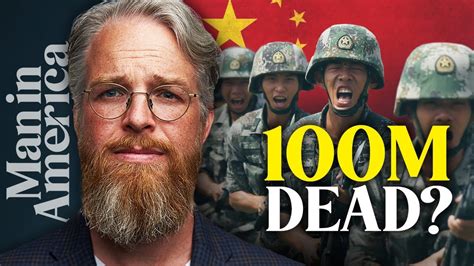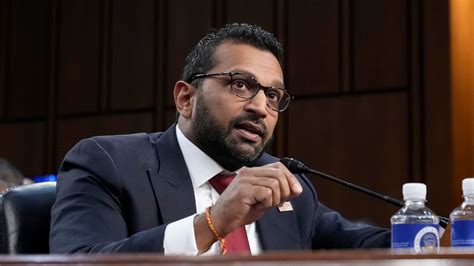
An American expatriate who moved to Europe seeking respite from the intense political polarization in the United States now finds that political divisions are increasingly pervasive even in her new European home, prompting her to question whether anywhere is truly immune to such societal fractures.
After fleeing the increasingly toxic political climate in the United States, one American woman discovered that the divisions she sought to escape are increasingly mirrored in Europe. Disillusioned by what she perceives as a growing trend of polarization and divisive politics across the globe, she now grapples with the unsettling realization that finding a haven from political strife may be an elusive quest.
Sarah Williams (not her real name, to protect her privacy), a former marketing executive from California, relocated to a small town in southern France five years ago, hoping to leave behind the constant barrage of political animosity that she felt had consumed American life. She told Yahoo News, “I was genuinely seeking a more moderate, less polarized environment. The U.S. had become unbearable with its constant infighting and the inability to find common ground.” However, Williams’s initial optimism has gradually waned as she observes the rise of populist movements, heated debates over immigration, and increasing ideological clashes within European societies.
“It started subtly,” she explained. “I noticed more and more discussions online and in local cafes mirroring the same kind of us-versus-them mentality that I had grown so tired of in the States.” She notes the growing influence of right-wing nationalist parties in countries like France, Germany, and Italy, whose platforms often hinge on anti-immigrant sentiment and cultural preservation. “These parties are gaining traction by exploiting people’s fears and anxieties, just like what happened back home,” Williams lamented.
The sense of political division isn’t just confined to national politics. Williams has observed similar trends in her local community, with debates erupting over issues such as local environmental policies, cultural preservation, and the integration of immigrant populations. She notes that these disagreements often escalate into heated arguments, mirroring the kind of uncompromising stances that she had hoped to escape.
“Even here, in this idyllic little town, you see people drawing lines in the sand,” she said. “It’s disheartening because it makes you wonder if this kind of division is just an inescapable part of modern society.”
Williams’s experience is not unique. Experts suggest that the rise of political polarization is a global phenomenon, fueled by factors such as social media, economic inequality, and the erosion of trust in traditional institutions. The internet and social media platforms, while offering avenues for connection and information sharing, have also inadvertently created echo chambers where individuals are primarily exposed to information that confirms their existing beliefs. This can reinforce polarization by limiting exposure to diverse perspectives and making it more difficult for people to understand and empathize with those who hold different views.
Dr. Emily Carter, a political scientist at the University of Berlin, argues that globalization itself has contributed to the rise of political division. “Globalization has brought about increased economic competition and cultural exchange, which can be perceived as a threat by some segments of the population,” she explains. “This can lead to a backlash in the form of nationalism and protectionism, further exacerbating political divisions.”
Economic inequality also plays a significant role. In many countries, the gap between the rich and the poor has widened in recent decades, leading to feelings of resentment and alienation among those who feel left behind. This can fuel support for populist movements that promise to address economic grievances, often by scapegoating minority groups or immigrants.
Moreover, the erosion of trust in traditional institutions, such as the media and government, has created a vacuum that has been filled by alternative sources of information, many of which are unreliable or biased. This makes it more difficult for citizens to distinguish between fact and fiction, further contributing to political polarization.
The situation is not without hope. There are efforts being made to bridge political divides and promote greater understanding and cooperation. Some organizations are working to promote civil discourse and dialogue, while others are focused on addressing the root causes of political polarization, such as economic inequality and lack of access to education.
Williams herself remains committed to finding ways to bridge the political divides in her community. She participates in local initiatives aimed at promoting understanding and cooperation, and she tries to engage in respectful conversations with people who hold different views.
“I haven’t given up hope,” she said. “I still believe that it’s possible to find common ground and work together to build a more just and equitable society. But it’s going to take a lot of effort and a willingness to listen to each other.”
While the dream of escaping political division may be unattainable, perhaps the most important lesson is the need to actively engage in efforts to foster understanding, empathy, and cooperation, wherever one may reside. The rise of polarization is a challenge that requires a collective response, one that transcends national borders and political ideologies.
In-Depth Analysis:
The experience of Sarah Williams highlights a broader trend of increasing political polarization across the globe, challenging the notion that escaping political strife is as simple as relocating to a different country. Her disillusionment reflects a growing awareness that the forces driving political division are complex and multifaceted, operating on both national and local levels. This section provides a deeper analysis of these forces and their impact on societies around the world.
The Role of Social Media and Echo Chambers:
One of the most significant factors contributing to political polarization is the rise of social media and the creation of echo chambers. Social media platforms, while offering unprecedented opportunities for connection and information sharing, have also inadvertently created environments where individuals are primarily exposed to information that confirms their existing beliefs.
Algorithms used by social media companies often prioritize content that is likely to engage users, which can lead to the creation of personalized feeds that reinforce existing biases. This means that people are less likely to encounter diverse perspectives and more likely to be exposed to information that confirms their pre-existing views.
This phenomenon is further exacerbated by the tendency of people to associate with like-minded individuals online. Social media platforms make it easy to connect with people who share similar interests and beliefs, which can lead to the formation of online communities that reinforce existing biases and make it more difficult for people to engage with those who hold different views.
The result is that people become increasingly entrenched in their own beliefs and less willing to consider alternative perspectives. This can lead to increased political polarization, as people become more likely to view those who hold different views as enemies or adversaries.
Economic Inequality and Populist Movements:
Economic inequality is another significant factor contributing to political polarization. In many countries, the gap between the rich and the poor has widened in recent decades, leading to feelings of resentment and alienation among those who feel left behind.
This can fuel support for populist movements that promise to address economic grievances, often by scapegoating minority groups or immigrants. Populist leaders often exploit people’s fears and anxieties by promising to restore a sense of national pride and identity, often at the expense of marginalized groups.
The rise of populist movements has been observed in many countries around the world, including the United States, Europe, and Latin America. These movements often share similar characteristics, such as a focus on nationalism, anti-immigrant sentiment, and a rejection of traditional political institutions.
The success of populist movements is often attributed to their ability to tap into the grievances of ordinary people who feel that they have been ignored or forgotten by the political establishment. By promising to address these grievances, populist leaders can gain a significant following and exert a powerful influence on political discourse.
Erosion of Trust in Institutions:
The erosion of trust in traditional institutions, such as the media and government, has also contributed to political polarization. In recent years, there has been a growing distrust of mainstream media outlets, with many people questioning their objectivity and impartiality.
This distrust has been fueled by the rise of alternative media sources, many of which are unreliable or biased. These alternative sources often promote conspiracy theories and misinformation, further eroding trust in traditional institutions and making it more difficult for citizens to distinguish between fact and fiction.
The erosion of trust in government has also contributed to political polarization. Many people feel that politicians are out of touch with the concerns of ordinary citizens and that the political system is rigged in favor of the wealthy and powerful.
This feeling of alienation can lead to political apathy and disengagement, as people become less likely to participate in the political process. It can also fuel support for radical political movements that promise to overthrow the existing political order.
The Role of Identity Politics:
Identity politics, which focuses on the interests and perspectives of social groups based on factors such as race, ethnicity, gender, and sexual orientation, has also played a significant role in shaping political polarization. While identity politics can be a powerful tool for promoting social justice and equality, it can also lead to increased division and conflict.
Critics of identity politics argue that it can reinforce group identities and create a sense of “us vs. them,” making it more difficult for people to find common ground and work together. They also argue that identity politics can lead to a focus on narrow group interests at the expense of broader societal goals.
However, proponents of identity politics argue that it is necessary to address historical injustices and ensure that marginalized groups have a voice in political decision-making. They argue that identity politics can help to create a more inclusive and equitable society by challenging existing power structures and promoting greater representation.
Addressing Political Polarization:
Addressing political polarization requires a multifaceted approach that tackles the underlying causes of division and promotes greater understanding and cooperation. Some of the key strategies that can be used to address political polarization include:
- Promoting Media Literacy: Media literacy education can help people to critically evaluate information and distinguish between fact and fiction. This can help to combat the spread of misinformation and promote greater trust in reliable sources of information.
- Encouraging Civil Discourse: Encouraging civil discourse and dialogue can help people to engage with those who hold different views in a respectful and constructive manner. This can help to break down stereotypes and promote greater understanding and empathy.
- Addressing Economic Inequality: Addressing economic inequality can help to reduce feelings of resentment and alienation among those who feel left behind. This can involve policies such as raising the minimum wage, increasing access to education and healthcare, and strengthening social safety nets.
- Reforming Political Institutions: Reforming political institutions can help to make them more responsive to the needs of ordinary citizens and reduce the influence of special interests. This can involve reforms such as campaign finance reform, gerrymandering reform, and ranked-choice voting.
- Promoting Civic Engagement: Promoting civic engagement can help to increase participation in the political process and ensure that all voices are heard. This can involve efforts such as voter registration drives, community organizing, and public forums.
Ultimately, addressing political polarization requires a collective effort that involves individuals, communities, and governments working together to build a more just and equitable society.
The Search for Common Ground:
The story of Sarah Williams serves as a reminder that the search for common ground is an ongoing process, one that requires a willingness to listen, learn, and engage with those who hold different views. While escaping political division may be an elusive goal, the effort to bridge divides and foster understanding is a worthwhile pursuit, one that can contribute to a more peaceful and prosperous world.
Expanded Context and Background Information:
To fully grasp the implications of Sarah Williams’ experience, it’s crucial to delve deeper into the historical and contemporary factors that have contributed to the rise of political polarization, both in the United States and in Europe.
Historical Roots of Polarization in the United States:
Political polarization in the United States is not a new phenomenon. It has deep historical roots that can be traced back to the founding of the nation. The Federalist and Anti-Federalist factions, which emerged during the debate over the ratification of the Constitution, represented fundamentally different visions for the future of the country.
Throughout the 19th century, political divisions were often centered around issues such as slavery, states’ rights, and economic policy. The Civil War, which pitted the North against the South, was a culmination of these deep-seated political divisions.
In the 20th century, political polarization was shaped by issues such as the New Deal, the Civil Rights Movement, and the Vietnam War. The rise of the conservative movement in the 1980s and the subsequent emergence of a more polarized political landscape have further intensified these divisions.
Factors Contributing to Contemporary Polarization in the United States:
Several factors have contributed to the intensification of political polarization in the United States in recent decades:
- The Decline of the Moderate Middle: The decline of the moderate middle in both the Democratic and Republican parties has led to a situation where there are fewer politicians who are willing to compromise and work across the aisle.
- The Rise of Partisan Media: The rise of partisan media outlets, such as Fox News and MSNBC, has created echo chambers where people are primarily exposed to information that confirms their existing beliefs.
- Gerrymandering: Gerrymandering, the practice of drawing electoral district boundaries to favor one political party over another, has created safe seats for incumbents and reduced the incentive for politicians to appeal to voters outside of their own party.
- Money in Politics: The increasing role of money in politics has made it more difficult for ordinary citizens to have their voices heard and has given special interests greater influence over political decision-making.
- Social and Cultural Divisions: Social and cultural divisions, such as those related to race, religion, and sexual orientation, have become increasingly politicized, further exacerbating political polarization.
Political Polarization in Europe:
While political polarization is often associated with the United States, it is also a growing phenomenon in Europe. Several factors have contributed to the rise of political division in Europe:
- The Rise of Populist Movements: The rise of populist movements, often fueled by anti-immigrant sentiment and economic anxiety, has challenged the traditional political order in many European countries.
- The Eurozone Crisis: The Eurozone crisis of the late 2000s and early 2010s exposed deep divisions within the European Union and led to increased economic inequality and social unrest.
- The Refugee Crisis: The refugee crisis of 2015 and 2016 led to increased anti-immigrant sentiment and fueled support for right-wing nationalist parties.
- Brexit: The United Kingdom’s decision to leave the European Union in 2016 exposed deep divisions within British society and had a ripple effect throughout Europe.
- The Rise of Social Media: The rise of social media has contributed to the creation of echo chambers and the spread of misinformation, further exacerbating political polarization.
Comparing Political Polarization in the United States and Europe:
While there are some similarities between political polarization in the United States and Europe, there are also some important differences:
- The Role of Identity Politics: Identity politics plays a more prominent role in the United States than in Europe.
- The Structure of Political Systems: The United States has a two-party system, while most European countries have multi-party systems.
- The Influence of Religion: Religion plays a more significant role in American politics than in most European countries.
- The History of Immigration: The United States has a longer history of immigration than most European countries.
The Global Implications of Political Polarization:
Political polarization has significant global implications. It can undermine democracy, erode trust in institutions, and make it more difficult to address pressing global challenges, such as climate change, poverty, and inequality.
The rise of political polarization also creates opportunities for authoritarian leaders to exploit divisions and consolidate power. By appealing to nationalist sentiment and scapegoating minority groups, authoritarian leaders can gain support and undermine democratic norms.
Addressing political polarization is therefore essential for safeguarding democracy and promoting a more just and equitable world.
Conclusion:
Sarah Williams’ experience serves as a cautionary tale about the pervasive nature of political division in the modern world. While escaping to a new country may offer a temporary respite, the underlying forces that drive political polarization are global in scope and require a collective response. By understanding the root causes of political division and working together to promote greater understanding, empathy, and cooperation, we can build a more peaceful and prosperous future for all.
5 Frequently Asked Questions (FAQ):
-
Why is political polarization increasing globally? Political polarization is increasing due to a combination of factors including the rise of social media and echo chambers, economic inequality leading to populist movements, erosion of trust in traditional institutions, the influence of identity politics, and the strategic exploitation of societal divisions by political actors. Globalization, with its increased economic competition and cultural exchange, can also contribute to feelings of threat and lead to nationalist backlash.
-
How do social media platforms contribute to political division? Social media platforms contribute to political division by creating echo chambers where users are primarily exposed to information that confirms their existing beliefs. Algorithms prioritize engaging content, often reinforcing biases. The tendency to associate with like-minded individuals online further entrenches these beliefs, making it harder to engage with diverse perspectives. This leads to increased polarization as individuals become less willing to consider alternative viewpoints.
-
What role does economic inequality play in fostering political polarization? Economic inequality creates feelings of resentment and alienation among those who feel left behind, fueling support for populist movements that promise to address economic grievances, often by scapegoating minority groups or immigrants. The widening gap between the rich and the poor can lead to a sense of injustice and a desire for radical change, which populist leaders exploit to gain support by promising to restore national pride and identity, frequently at the expense of marginalized groups.
-
What are some strategies for addressing political polarization? Strategies for addressing political polarization include promoting media literacy to help people critically evaluate information, encouraging civil discourse and dialogue to foster respectful engagement with differing views, addressing economic inequality through policies that support the working class, reforming political institutions to reduce the influence of special interests, and promoting civic engagement to ensure all voices are heard. These efforts require a collective approach involving individuals, communities, and governments.
-
Is it possible to escape political polarization by moving to a different country? While moving to a different country may offer a temporary reprieve, the underlying forces driving political polarization are global. Sarah Williams’ experience shows that political divisions are increasingly pervasive worldwide, making it difficult to completely escape them. The more effective approach is to actively engage in efforts to foster understanding, empathy, and cooperation wherever one resides, rather than seeking an elusive escape.









